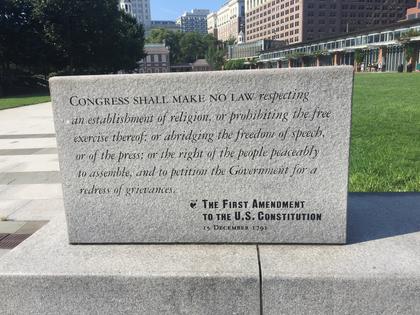What the First Amendment really says – 4 basic principles of free speech in the US
Published in News & Features
Elon Musk has claimed he believes in free speech no matter what. He calls it a bulwark against tyranny in America and promises to reconstruct Twitter, which he now owns, so that its policy on free expression “matches the law.” Yet his grasp of the First Amendment – the law that governs free speech in the U.S. – appears to be quite limited. And he’s not alone.
I am a lawyer and a professor who has taught constitutional concepts to undergraduate students for over 15 years and has written a book for the uninitiated about the freedom of speech; it strikes me that not many people educated in American schools, whether public or private – including lawyers, teachers, talking heads and school board members – appear to have a working knowledge about the right to free speech embedded in the First Amendment of the U.S. Constitution.
But that doesn’t have to be the case.
In short, the First Amendment enshrines the freedom to speak one’s mind. It’s not written in code and does not require an advanced degree to understand. It simply states: “Congress shall make no law … abridging the freedom of speech.” The liberties embraced by that phrase belong to all of us who live in the United States, and we can all become knowledgeable about their breadth and limitations.
There are just four essential principles.
The Bill of Rights – the other name for the first 10 amendments to the U.S. Constitution – like the Constitution itself and all the other amendments, sets limits only on the relationship between the U.S. government and its people.
It does not apply to interactions in other nations, nor interactions between people in the U.S. or companies. If the government is not involved, the First Amendment does not apply.
The First Amendment ensures that Twitter is, in fact, free of government restrictions against spreading misinformation and disinformation or virtually anything else. The company is similarly free to expel any users who offend Musk’s personal sensibilities. They can be booted off Twitter and any charges of “Censorship!” don’t apply.
Freedom of expression was understood by the nation’s founders to be a natural, unalienable right that belongs to every human being.
Over the course of the first 120-plus years of the country’s democratic experiment, judicial interpretation of that right slowly evolved from a limited to an expansive view. In the middle of the 20th century, the Supreme Court ultimately concluded that because the right to speak freely is so fundamental, it is subject to restriction only in limited circumstances.
...continued











Comments